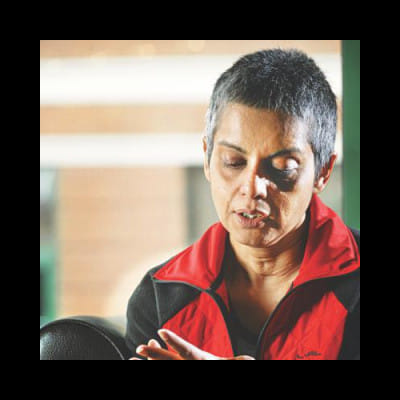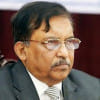'Save voices of Bangladeshi free thinkers'

Rafida Ahmed Banya, the widow of Bangladeshi-American blogger Avijit Roy, has urged the international community to come forward to help save the voices of Bangladeshi journalists, writers, bloggers, and publishers and help them maintain a healthy secular society.
"These brave Bangladeshi journalists, writers, bloggers, and publishers love their country and want to make a difference in their own homeland," she said.
They are out, along with the citizens of Bangladesh, in the street to protest these murders, the impunity, and the inaction of the Bangladeshi government, Banya said adding that they have been continuing their work knowing the constant threats.
She made the call in a briefing series on shrinking space for civil society titled 'Human Rights in Bangladesh' held at Rayburn House Office Building in the USA yesterday. Tom Lantos Human Rights Commission of the US Congress arranged the briefing.
Apart from Banya, a writer and activist, Sahar Chaudhry, Senior Policy Analyst, US Commission for International Religious Freedom, Karin Deutsch Karlekar, Director, Free Expression Programs, PEN American Center, Bharath Gopalaswamy, Director, South Asia Center, Atlantic Council took part in the briefing.
Michael De Dora, Director, Office of Public Policy, Center for Inquiry moderated the briefing.
Congressman James P McGovern, Co-chair, Tom Lantos Human Rights Commission delivered the opening remark.
Banya said the Bangladesh government stayed completely quiet after the first three murders of the secular or atheist bloggers. "And then, when they were forced to say something after the fourth murder, they instead told us to be careful about what we write."
About war criminals, she said the war criminals who have been tried in Bangladesh should not be considered as the "opposition leaders".
"They are war criminals with proven and well-documented records of mass murders and tortures during our liberation war in 1971. We strongly believe that Bangladesh has come to this stage partly because these religious fanatics and the war criminals were allowed to be rehabilitated in Bangladesh decades after the new nation state was formed."
The Bangladeshi government needs to understand that they cannot stop these terrorists unless they openly condemn their acts and take action to bring them to justice, she said.
"They cannot claim to be a secular government or a secular political party unless they protect freedom of expression for every citizen. We're seeing the classic. You won't be able to protect the religious rights of your citizens in a secular country unless you protect the freedom of expression regardless of religion or no religion."
Congressman McGovern said in the power struggle between the major political parties-the Awami League and the Bangladesh National Party-civil society often gets caught in the crossfire.
He said additional concerns have been raised by the government's response to protests and dissent.
"There have been reports of extrajudicial killings and enforced disappearances. With the news that transnational terror networks-including al Qaeda and ISIS-are present in Bangladesh, the challenges to stability and democracy are likely to intensify."
The Congressman said as a member of the international community and State Party to human rights treaties, Bangladesh has an obligation to protect everyone's rights not only when convenient, but under all circumstances.
He listened to panelists' recommendations as to how the US, and specifically Congress, can best engage the Bangladeshi government to secure human rights for all its people.
Michael De Dora said if the human rights situation in Bangladesh worsens - if terror groups such as Ansarullah Bangla Team and al Qaeda and ISIS are allowed to roam more freely in, and take more control over the country - the global community will soon have a much bigger problem on our hands than a series of gruesome attacks in Bangladesh.
Sadly, however, over the past two years the human rights situation in Bangladesh has worsened, Dora said.
"Most prominently, this deterioration has been marked by the five gruesome murders of secular writers and publishers this year alone."
And still, these attacks are but one element of Bangladesh's broader deteriorating human rights situation, which has undermined civil and political rights, Dora said.

 For all latest news, follow The Daily Star's Google News channel.
For all latest news, follow The Daily Star's Google News channel. 








Comments